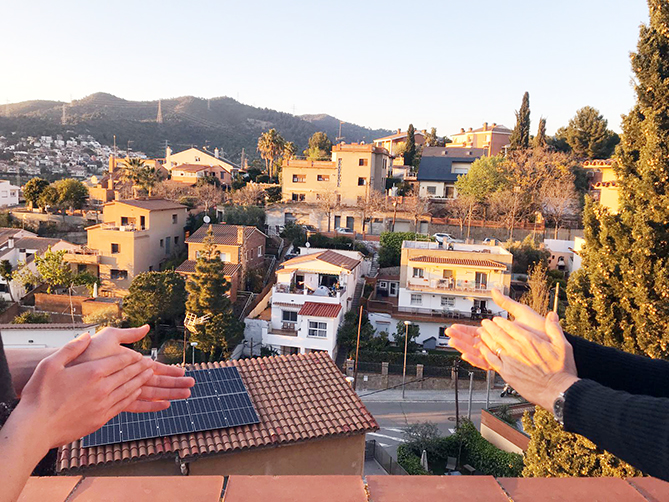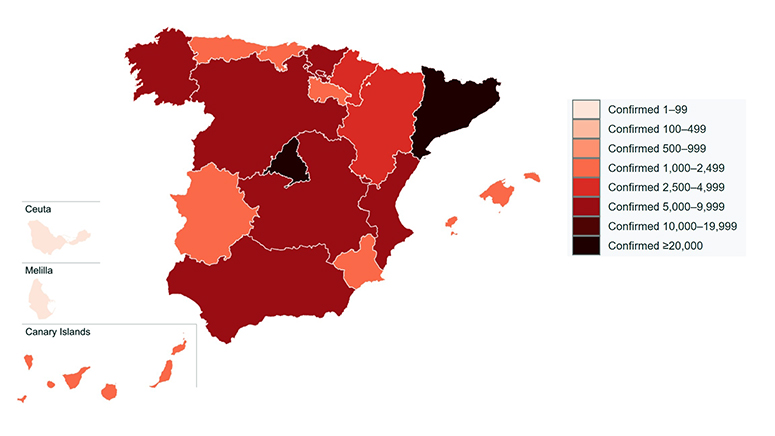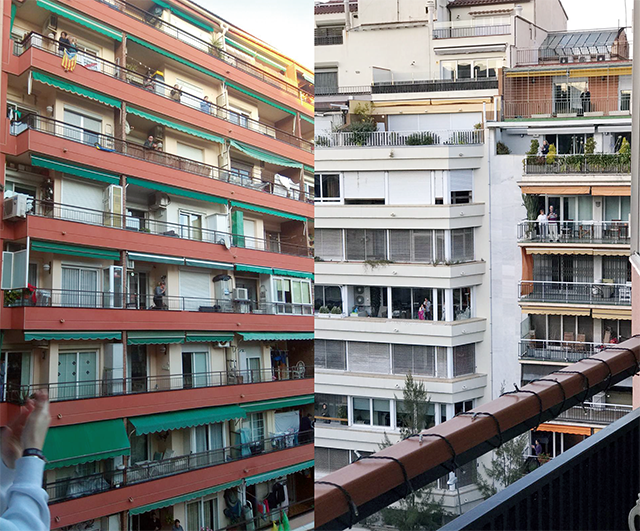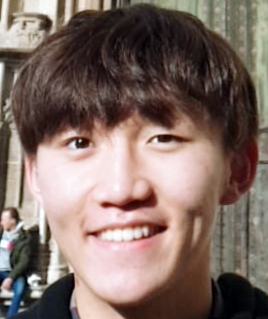Here in Spain, every night at 8 pm, you will hear the whole country serenaded in thunderous applause and cheers from citizens for a brief few minute. From the honking of bypassing cars to the “¡Viva los médicos!” (Spanish for “Hooray medics!”) from the balconies, the whole country erupts in a riotous frenzy of positivity. As the world transitioned into 2020, it was met with a devastating pandemic, the novel coronavirus (COVID-19). Originating from Wuhan, China, COVID-19 is causing drastic impacts in countries around the world. Europe was especially hit hard due to this pandemic, contributing more than one-third of the total global number of infected cases, and more than one half of the number of deaths.

Spain is one of the countries that was most heavily hit by the coronavirus, having the second highest number of confirmed cases in the world (as of April 4). After its first confirmed case on January 31, the country spiraled into a state of crisis, with the number of confirmed cases and death tolls rising exponentially. According to Worldometer, at the time of writing this article (April 4), the number of confirmed coronavirus cases in Spain was 124,736, and the number of deaths 11,744 people. The Spanish government declared a 15-day state of emergency that began on Friday, March 13 which banned non-essential movement, effectively starting a nation-wide quarantine. On March 26, the government extended the state of national emergency until April 12, but it is unclear exactly when this state of national crisis and quarantine will end. The continued quarantine policy is and will undoubtedly have drastic implications for the country both socially and economically, with confined citizens forced to either work from their homes or having to shut down their businesses entirely, as leaving one's house without a “valid reason of urgency” (buying food, medical products, or medical emergencies) can cost up to a 100 euro€ fine.

As Spain became one of the hotbeds of the coronavirus pandemic, the Spanish healthcare system was overflowed with patients. This surge in the need for medical assistance in Spain has caused healthcare workers to work tirelessly. According to Diario Médico, the government has tried to reassure citizens by stating that Spain has a strong healthcare system. However, it is evident that the Spanish healthcare system is on the verge of collapse with the number of patients and fatalities increasing at an alarming rate, as validated by sources such as Express News, which alludes to the nearly 20 to 40 percent increase in patient numbers and fatalities on certain days. There is no doubt that the workers of the Spanish healthcare system are persevering strenuously both physically and mentally to overcome this increasingly difficult situation.
In the midst of this bleak situation, people around Spain have come up with various creative ways to make the most out of their newfound quarantine time and keep up their spirits, from neighborhood bingo games on apartment balconies to the disco parties people host from terraces. However, one of the most notable of these “events” is definitely the daily applause and cheers for the sanitary workers, referred to as the“Aplauso Sanitario” movement.
Every night, at 8 pm, the citizens of Spain gather at their balconies and orchestrate a standing ovation filled with whistles, cheers, and motivational words of encouragement in solidarity for healthcare workers. Cars on the streets also join in on the moment by honking in sync to the claps. This serenade goes on for a few minutes. In Barcelona, the sounds of cheers and claps fill the city, making the thunderous applause audible for miles. This movement, which has spread nationwide thanks to social media, was met with a lot of positive reactions, with healthcare workers posting reaction videos and messages of gratitude online, as well as from the citizens themselves, with the hashtags #aplausosanitario and #yomequedoencasa (Spanish for “I’m staying at home”) trending in Spanish social media. Various Spanish news agencies such as El Mundo have described this movement as "an effective psychological vaccine that is much needed for the difficult days ahead.”

Aplauso Sanitario was also well-received by foreigners residing in Barcelona/Spain, such as Nastia Kravtcova, a Russian student attending the American School of Barcelona who lives in a neighborhood of tight-knit Catalan senior residents, who described these applauses as a “beautiful gesture of positivity and hope.” Pedro Saad, a Brazilian student attending the American School of Barcelona who has lived in Barcelona for four years, commented on the applauses as a “heartwarming way to break the physical barriers imposed by the unfortunate circumstances.” Ellie Loftus, a student who has lived in Barcelona her entire life, commented on Aplauso Sanitario as “a really good way of showing appreciation and support for the doctors putting their lives at risk”, further adding that “as someone who has lived here for a long time, it is really interesting to see everyone come together, even if it's only for a few minutes, since it is very rare and special to see such events.”
As someone who has been living in Spain for about two years, it feels genuinely surreal to be in the midst of this unprecedented situation. I have noticed that a lot of people have been hit both physically and mentally by being barred from society, and it is taking a serious toll in mental health for various people. This is why Aplauso Sanitario is so impressive and heartwarming. Never have I seen a place that has a great sense of community and support for the people on the frontlines of the COVID-19 war, and I can safely say that the Spanish spirit of joy and hope have not been crushed by this pandemic. I have been participating in Aplauso Sanitario for about a month now, and every time, I can feel the passion and community of the Spanish people in solidarity for their medical workers. It is very nice to see my neighbors out on their balconies clapping and cheering every night at 8:00 pm, filling the air with their thunderous applause.
The Aplauso Sanitario movement is now not only a Spanish occurrence. Other European countries, such as Italy and Great Britain (countries that are also severely impacted by the coronavirus) are also showing their gratitude in their own forms of Aplauso Sanitario.
Aplauso Sanitario shows the appreciation for the grueling work that healthcare workers have to endure each day as part of humanity´s battle against the coronavirus. This case of community and solidarity in Spain in the midst of a global pandemic is a prime example of people striving to overcome hardships and unfortunate circumstances in a positive manner and should set precedent to others around the world to keep their sense of unity and hope in a time of adversity. As the Spanish saying goes, “¡A mal tiempo, buena cara!” (in bad weather, keep a happy face)

Yuchan Choi
Junior (11th Grade)
American School of Barcelona (Spain)

